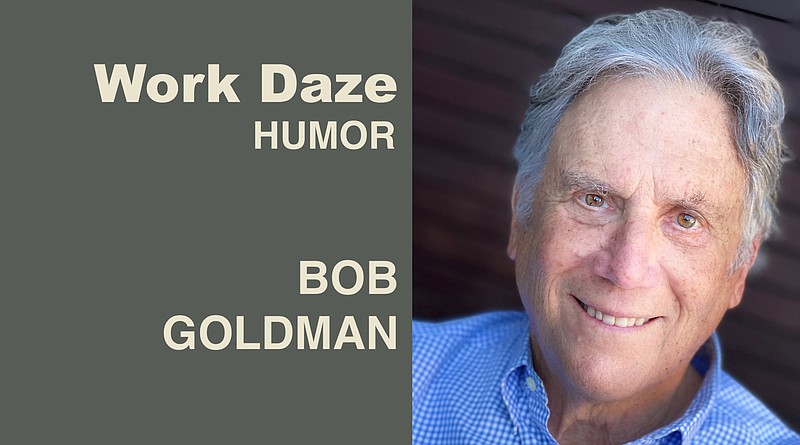Full disclosure: We're negative about people who think positive. And that goes double for people at work.
The manager is a maniac? The positive people don't notice. The company is going under? The positive people don't care. No matter what's wrong with the job, the positive people are optimistic. The maniac manager will come to his senses. The sinking company's prospects will be reversed.
Everything at work will work out fine. Just keep smiling.
These upbeat upstarts are not only delusional, they're dangerous. By refusing to see problems, they never make an effort to find solutions. Plus, they make reasonable and rational people like yourself look bad, and feel bad, too, which is exactly how the "glass is half full" crowd creates the workplace mindset called "toxic positivity."
"When people are unable to express any criticism or strong emotion," says psychologist Heather Myers, "they can enter a shame spiral where they feel bad about what they are feeling and guilty that they cannot seem to stop these feelings by thinking positively. And feeling bad about feeling bad can turn into a cycle of stress that makes it increasingly difficult to bounce back."
I learned about the shame spiral and all the other negatives that come from thinking positive in "What Toxic Positivity Looks Like at Work — and How to Deal with It," a recent article on the job site TheMuse.com by Sakshi Udavant.
I also learned techniques for dealing with toxic positivity at work. Will they work for you? I'm almost positive.
No. 1: "Speak up and be open about your struggles."
You shouldn't hide your light under a barrel. You shouldn't hide your darkness, either. No matter how much enthusiasm your "look on the bright side" co-workers express at the introduction of a new initiative, don't be afraid to express your inner grouch. "I'm afraid we're headed in the wrong direction here," is what to say when any new idea is introduced. "I think we all know that change never works and we're much better off not even trying."
If the new initiative works out, no one will remember your doubts. If it fails, everyone will think you're a genius.
No. 2: "Call it out when you see others doing it."
Toxic comments like, "I'm sure it will all work out if we all work hard," or "I have faith that with your abilities, you'll solve the problem," must not be allowed to stand. Point out that you've never worked hard in the past and definitely don't plan to do so in the future. As for having faith in your abilities, you should reply, "I'm glad you do, because I certainly don't."
Let people know upfront that if the success of any project depends on you, they better prepare for failure. "I'll give it a try," you should say, "but don't blame me when I screw up."
That way, when you do screw up, you're covered.
No. 3: "Practice empathy."
If you're the one who is suggesting the new idea, and a manager or co-worker expresses doubts, be sure to acknowledge their feelings. "I can see that you're feeling upset right now," psychologist Myers suggests as a good response, or "I understand why you might feel that way."
To which I would add, "being a failure in your professional and personal life would naturally make you be afraid of my genius, but don't worry. Everyone knows you're a loser and no one expects anything more than your abject failure."
If that ain't empathy, I don't know what is.
No. 4: "Create a safe space for questions and concerns."
The article suggests managers provide an online form or special Slack channel for employees to record questions and doubts. Creating a digital complaint box is efficient. It makes it so much easier for HR to prepare the complainer's termination papers.
An even safer safe space is the nearest tavern. A few hours schmoozing with your fellow malcontents over Wasabi Martinis at the Kit Kat Club will make you feel better when you get back to the office, assuming you can find your office.
No. 5: "Share additional resources."
Toxic positivity is the subject of books, podcasts and YouTube videos. These are resources to share when you feel your managers and co-workers are becoming dangerously happy.
If you can't turn those smiles upside down, start looking for a new job — a position where everyone knows the future is hopeless and you have zero chance of success.
Hey, wait a minute! That's the job you already have.
Bob Goldman was an advertising executive at a Fortune 500 company. He offers a virtual shoulder to cry on at [email protected]

